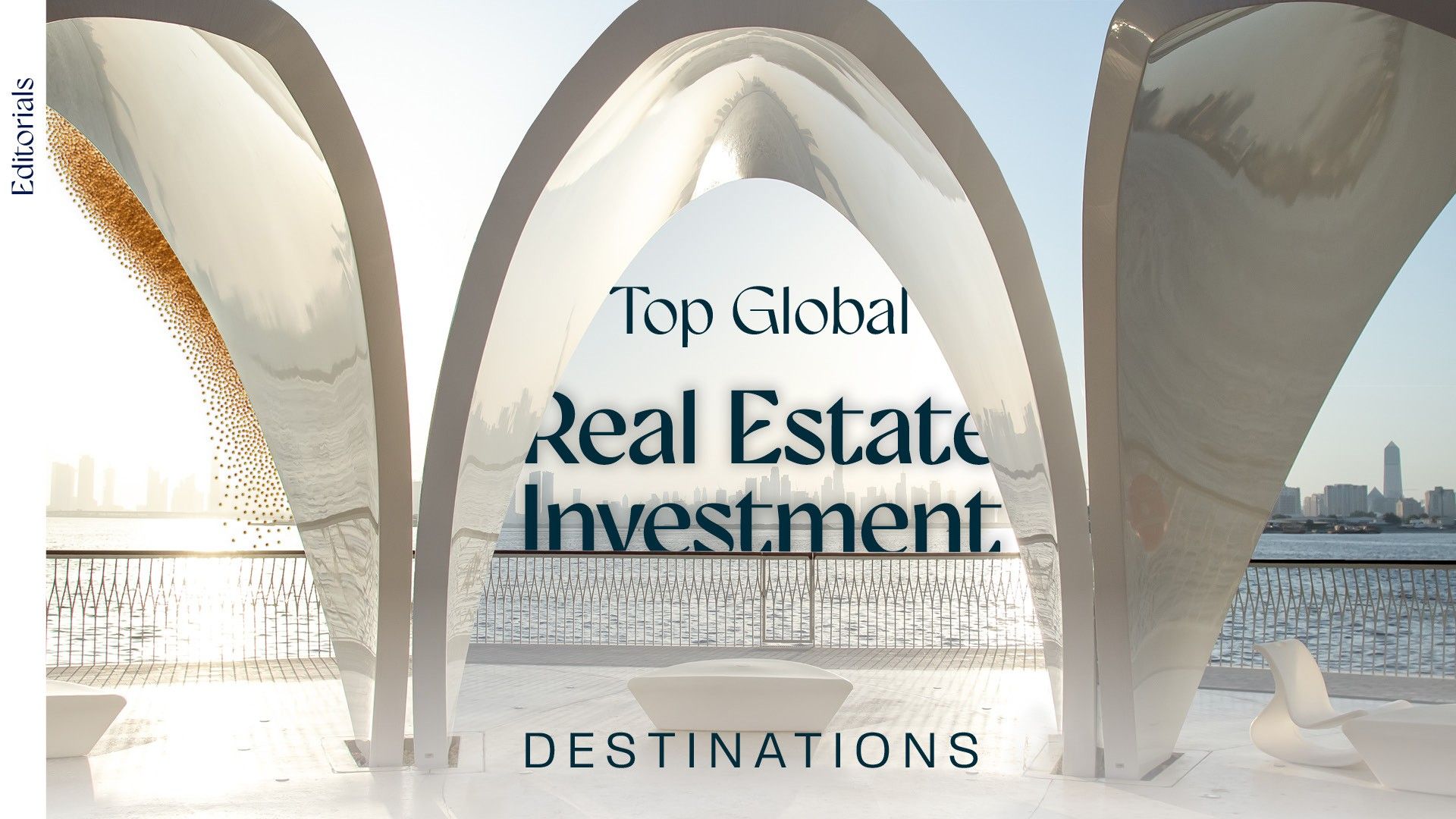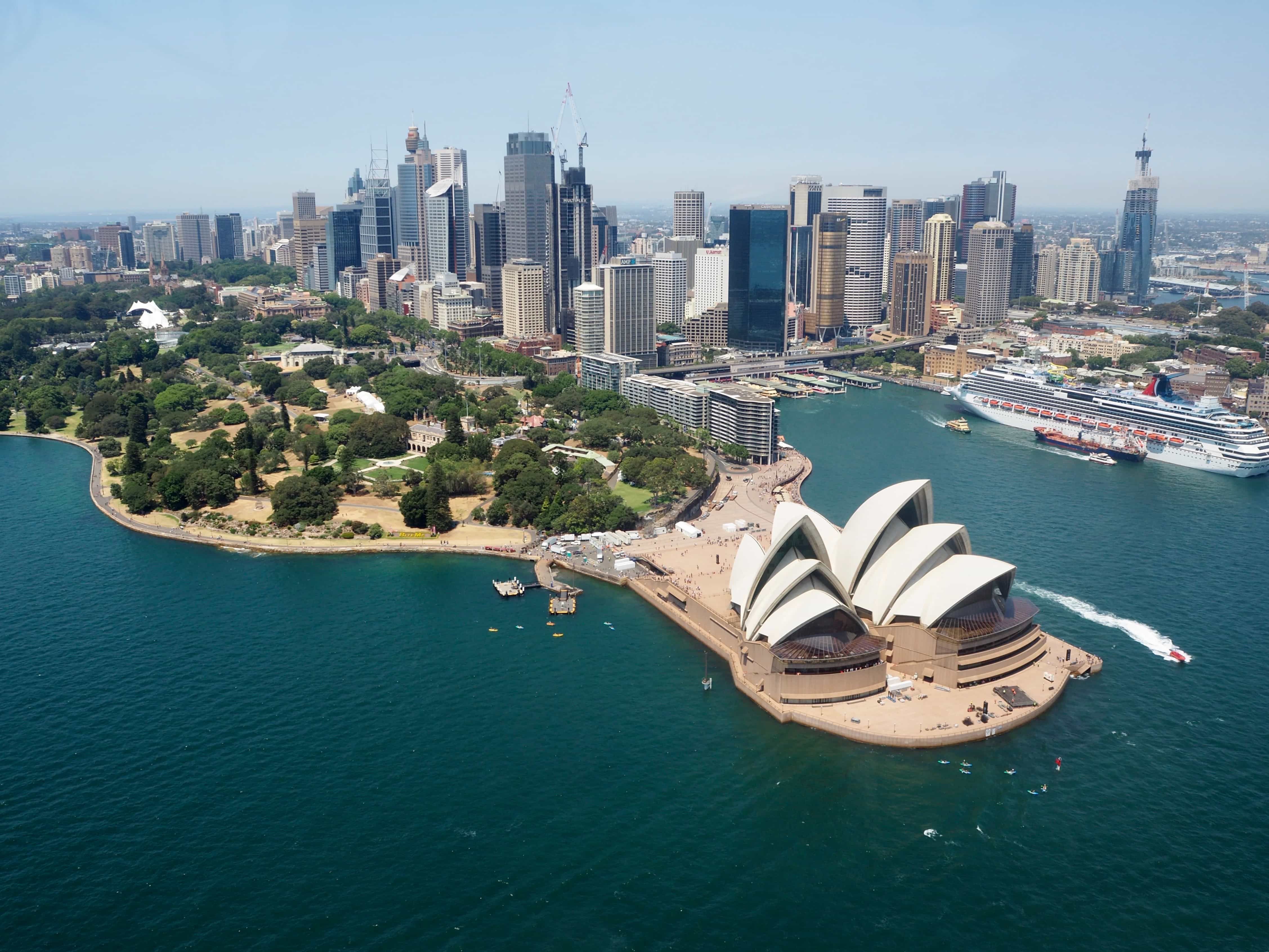Top Global Real Estate Investment Destinations

The New Compass: Strategic Insights into the Top Global Real Estate Investment Destinations
The global real estate investment landscape is in constant flux; a collection of moving parts from economic shifts to technological accelerations and evolving societal needs. For astute investors and real estate professionals, merely identifying "hot markets" is insufficient. What’s needed is a sophisticated, data-driven approach that can unlock sustainable value. Understanding why certain destinations are poised for outperformance is as crucial as knowing where to deploy capital.
How Do We Identify Global Investment Hotspots?
Our approach to pinpointing the world's leading real estate investment destinations is multifaceted, moving beyond superficial metrics to delve into the underlying fundamentals that drive long-term value and resilience. We consider a synthesis of key criteria:
Robust Economic Fundamentals: This includes a deep dive into GDP growth trajectories, employment rates, diversification away from single industries and the emergence of high-growth sectors (for example tech and green energy). A strong, resilient economy underpins demand across all property types.
Favourable Demographic Dynamics: Population growth, urbanisation rates, the influx of skilled talent and the formation of new households directly correlate with sustained demand for residential, retail and commercial spaces. Youthful, expanding populations signal future consumption and workforce potential.
Market Liquidity & Transparency: Ease of transacting, access to reliable market data, clear legal and regulatory frameworks and low levels of corruption instil investor confidence and allow for efficient capital deployment and exit strategies.
Infrastructure Investment & Connectivity: Ongoing, significant investment in transportation networks (roads, rail, airports), digital infrastructure (5G, fibre optics) and social amenities (schools, hospitals) enhances accessibility, liveability and business efficiency, directly increasing property values.
Yield & Capital Appreciation Potential: A critical balance between attractive rental yields (income generation) and the potential for long-term capital appreciation (asset value growth) is assessed, considering risk premiums for different market maturities.
ESG & Sustainability Commitment: Environmental, Social and Governance (ESG) factors are no longer optional but fundamental. Destinations and projects demonstrating strong commitments to sustainability, energy efficiency and social well-being attract increasing institutional capital and command premium valuations.
Geopolitical Stability & Government Policy: A stable political environment, predictable regulatory policies and pro-investment government initiatives are foundational. This includes ease of doing business, foreign ownership rules and incentives for specific industries.
By evaluating destinations through this comprehensive lens, we gain a nuanced understanding of their true investment potential, moving beyond short-term speculative gains to identify markets built for enduring success.
Which Cities Come Out On Top?
Based on these robust criteria, several destinations are currently shining as top-tier real estate investment opportunities across various sectors. We’ve categorised them into two distinctions: established and resilient global hubs for stability and long-term growth and dynamic growth and emerging markets for higher returns and diversification.
Established and Resilient Global Hubs
These markets offer deep liquidity and often serve as safe havens, attracting institutional capital despite potentially lower immediate yields compared to emerging markets.
Major US Cities including New York, Boston, Los Angeles, San Francisco, Miami and Austin
- Deep and liquid real estate markets with extensive capital flow.
- Innovation ecosystems driving demand for specialized assets (tech, biotech, life sciences).
- Diverse economies providing stability across various property sectors.
- Strong institutional investor presence and robust legal frameworks.
- Sun Belt cities benefit from inter-state migration and business relocation.

London, UK:
- Continues its reign as a premier global financial and cultural capital.
- High transparency and liquidity attract significant international investment.
- World-class educational institutions fuel demand for prime residential and commercial spaces.
- Resilience demonstrated through various economic cycles.

Paris, France:
- Benefits from its status as a leading European capital with strong tourism and luxury retail sectors.
- Significant ongoing infrastructure development, such as the Grand Paris Express, enhances connectivity and value.
- Strong appeal to international businesses and residents.
Munich, Berlin, Frankfurt, Germany:
- Anchored by Germany's robust and stable economy.
- Strong demand for residential and commercial assets, particularly within tech and creative industries.
- Relatively lower market volatility compared to some other European counterparts.
Sydney & Melbourne, Australia:
- Consistent population growth and high quality of life drive demand across residential and commercial sectors.
- Strong, transparent regulatory environments.
- Strategic gateway status to the burgeoning Asian markets.

Dynamic Growth & Emerging Markets
These regions offer accelerated growth prospects and opportunities for higher returns, often supported by ambitious national development agendas.
Dubai, UAE:
- Experiencing a sustained boom propelled by pro-growth government policies and attractive residency programmes.
- Significant investments in world-class infrastructure and diverse economic sectors.
- Acts as a global safe haven, drawing substantial international capital.
- Robust demand across luxury residential, commercial, industrial and hospitality segments.
Riyadh, Saudi Arabia:
- At the epicentre of Saudi Vision 2030, benefiting from unparalleled government investment in giga-projects and urban transformation.
- Projected to double its population, creating immense demand across all real estate sectors.
- Rapidly emerging as a dominant regional business, innovation and tourism hub.
Singapore:
- Maintains its position as a highly attractive destination due to political stability, a leading financial hub and a strong innovation ecosystem.
- Limited land supply ensures strong asset appreciation for prime and specialised properties.
- Continues to attract high-net-worth individuals and multinational corporations.

Select Cities in India including Bangalore, Mumbai, Delhi-NCR:
- Driven by a massive domestic market, a burgeoning technology sector, and significant infrastructure upgrades.
- Offers compelling growth potential in residential, office, and logistics, catering to a rapidly expanding middle class.
Southeast Asian Hubs including Ho Chi Minh City and Jakarta
- Benefiting from rapid economic expansion, favourable demographics and increasing foreign direct investment in manufacturing and technology.
- Present high-growth potential in residential, industrial, and retail sectors, as these economies continue to mature.
The future of real estate investment demands agility and foresight.
While established markets offer stability, the dynamic growth regions present compelling opportunities for outsized returns. Investors who combine rigorous analysis with an adaptable strategy, particularly those recognising the pivotal role of ESG factors and technological integration, will be best positioned to thrive in this evolving global landscape.
To stay ahead of market movements and connect with your peers, mark your calendars for RISE from 13 – 15 January 2026 at Dubai Expo City.
Website | Show Sectors | Why Exhibit? | Why Attend? | Testimonials | Editorials
)
)
)